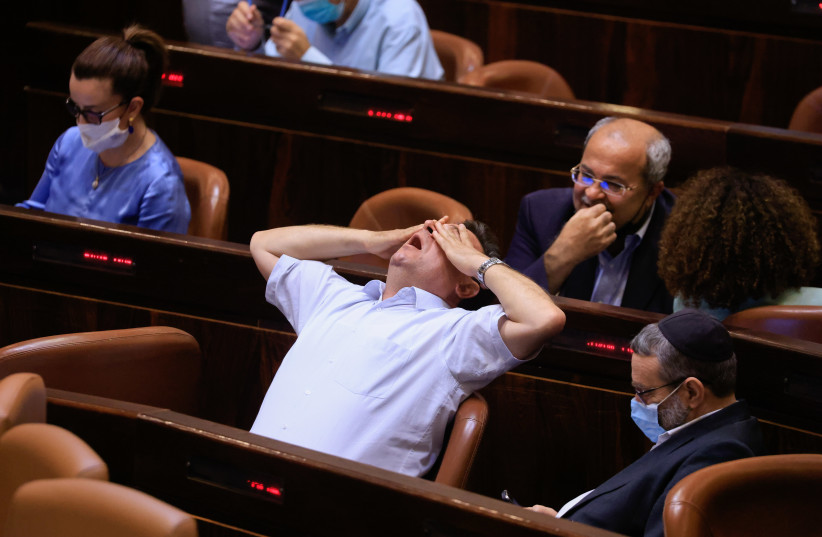Some 27% of licensed Israeli drivers admitted to falling asleep while driving at least once in the past 12 months, a new poll issued this month by nonprofit Or Yarok, the Association for Safer Driving in Israel, found.
The poll was designed to bring awareness to what Yarok called "a worrying rise" in the percentage of Israeli drivers who had admitted to sleeping at the wheel over the past five years, which stands at some 30%, based on data accumulated by the nonprofit in the time period between 2017-2022.
Despite that, the new poll's figure of 27% is lower than the 39% who said the same in a similar study conducted by Or Yarok in 2019.
Men sleepier than women, Arab sector had most drowzy drivers
Men were more likely to take an impromptu nap in the car than women, an analysis of the gathered data showed. 32% of men who took part in the poll said they fell asleep mid-driving at least once this year, compared to roughly one-in-five women (21%).
Or Yarok also noted that the 18-34 age group had reported the most instances of falling asleep at the wheel among themselves at 30%.

Israel's Arab sector had the highest percentage of tired drivers out of any other sector with 31%, higher than the Israeli average. 31% of Arab-Israelis further said that they were driven by someone who had fallen asleep at the wheel at least once in the past 12 months.
Across all data gathered in the poll, the number of people who were driven by someone who later fell asleep stood at 37%, again lower than the 49% recorded when a similar question was asked in a 2019 poll.
Driving fatigue can affect your ability to drive and react to what is happening on the road, Or Yarok CEO Yaniv Ya'akov said in reaction to the poll's results. "It can negatively affect our awareness of pedestrians, electric scooters, traffic lights and signage," Ya'akov added.
Two types of Israeli drivers are most at risk of crashing
According to Ya'akov, there are two types of Israeli drivers who are most at risk of falling asleep at the wheel - young Israelis and professional drivers.
"Young people who drive mostly during night time, and professional drivers who drive for most hours of the day, are more exposed to driver fatigue and, therefore, more likely to be involved in accidents."
He noted that "tired, drowsy drivers are at a higher risk of being involved in car crashes."
Furthermore, the Or Yarok head called on the relevant Israeli authorities to speed up the transition from the old analog tachographs used in heavy vehicles to newer, digital tachographs to ensure the reliable recording of vehicles' speed of distance in the case of an accident.
The use of digital tachographs, which Ya'akov said is "common in developed countries, will prevent trucks and other heavy vehicles from driving on dangerous roads beyond the allowed times."
